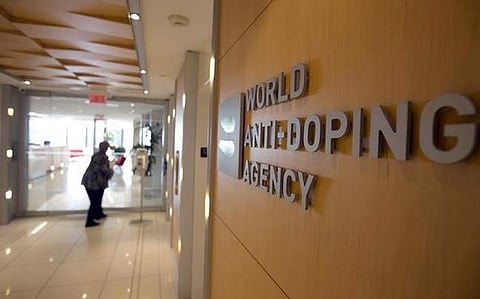

CHENNAI: With just 11 months left for the 2020 Tokyo Olympics, World Anti-Doping Agency (WADA) has suspended National Dope Testing Laboratory (NDTL) in New Delhi for a period of six months.
In a press communication early on Friday morning, WADA revealed that the suspension was due to NDTL’s non-conformance with its international standard for laboratories. “This suspension has been imposed due to non-conformity with the International Standard for Laboratories (ISL) as identified during a WADA site visit, including in relation to the laboratory’s isotope ratio mass spectrometry (GC/C/IRMS) analytical method, as regulated by the relevant technical document,” the WADA statement said.
The suspension means that National Anti-Doping Agency (NADA) will now have to look for labs outside the country to test the samples that it collects at various meets. With the Olympics less than an year away, this presents an obstacle for the body which had recently revealed plans to step up testing to weed out potential drug-cheats before the Games.
NADA director general Navin Agarwal, though, said that this will not affect the agency’s functioning. “We have the option of sending the samples to any of the WADA-accredited labs. Our work will not get affected.”
NADA’s immediate task will be transferring untested samples present at NDTL to another accredited lab. “During the period of suspension, samples that have not yet been analysed by NDTL; samples currently undergoing confirmation procedure; and any samples for which an Adverse Analytical Finding has been reported, must be securely transported to another WADA-accredited laboratory,” said the statement. While it is unclear as to who will shoulder the extra expenditure that NADA will incur for transferring samples to an international laboratory, sources revealed that the government will be expected to bear the responsibility.
It is understood that testing one sample at an international lab will cost NADA approximately $250-300, transportation overhead excluded. NADA is also expected to send the samples to an Asian lab. According to WADA’s statement, the suspension started on August 20. NDTL, though, has the option of appealing to Court of Arbitration for Sport. “Pursuant to Article 13.7 of the World Anti-Doping Code, the laboratory may appeal this decision to the Court of Arbitration for Sport within 21 days of receipt of notice.”
Indian Olympic Association president Narinder Batra said that the suspension has come as a big blow to the Olympic movement. IOA is in no position to bear the costs.
“During the period of suspension, the laboratory shall address all non-conformity identified by LabEG or WADA in any request for corrective action or otherwise, as well as any additional non-conformity identified during any follow up WADA site visit during the suspension period,” said the statement.
“If the laboratory satisfies LabEG in meeting these requirements, it may apply for reinstatement prior to the expiry of the six-month suspension period. Should the laboratory not address the non-conformities by the end of the six-month suspension period, WADA may extend the suspension of the laboratory’s accreditation for up to an additional six months.”
According to anti-doping experts, the suspension will have affect the country’s anti-doping programme. Ashok Ahuja, former chief of centre for sports science at National Institute of Sports (Patiala), feels it will heavily burden NDTL’s budget. Also, with world championships lined up, it needs to be seen as to how sampling will be done.